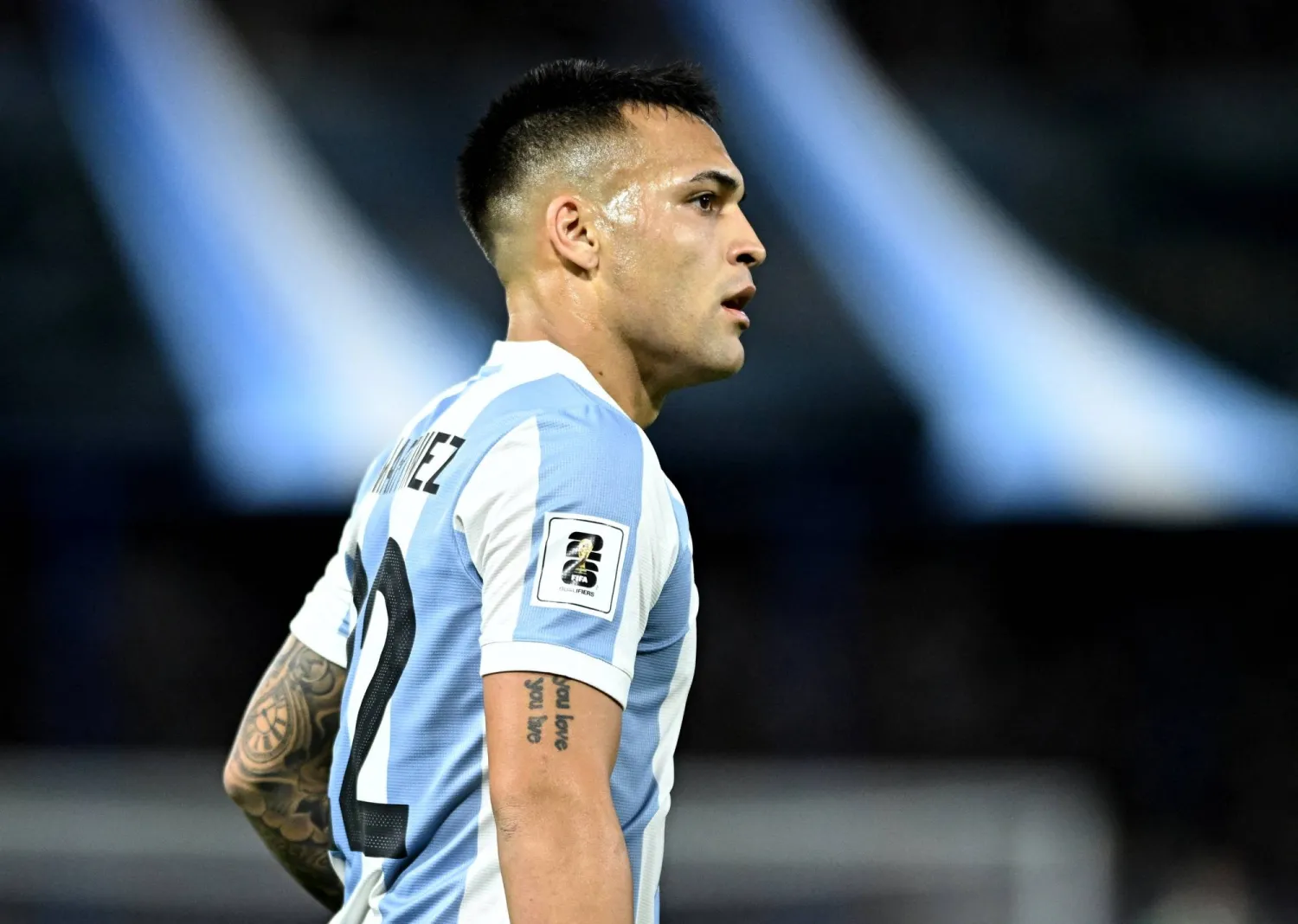Lautaro Martínez's goal gave Argentina a 1-0 win over Peru on Tuesday in a South American qualifying match in Buenos Aires and left the hosts close to a spot in the 2026 World Cup in the United States, Mexico and Canada, The Associated Press reported.
Its main continental rivals Brazil drew 1-1 against Uruguay in Salvador, Brazil with two impressive goals in an otherwise lackluster match. Federico Valverde gave Uruguay the lead with a curled shot from the edge of the box, and Gerson netted his first for Brazil in similar fashion at the Arena Fonte Nova.
Argentina leads South American qualifying with 25 points from 12 matches, five points clear of its closest competitor, Uruguay. Ecuador and Colombia are next with 19 points each.
Brazil lags in fifth position with 18 points after several uninspiring performances, still hoping that striker Neymar will return from injury and fit in again. Paraguay, with 17 points, is in sixth place.
South American qualifying will give six direct berths in the next World Cup. Seventh-place Bolivia, with 13 points, is in the international playoff position. Venezuela (12), Chile (9), and Peru (7) are out of qualifying spots.
The next round of South American World Cup qualifying will be played in March.
Uninspiring Argentina Martínez's goal was his 32nd for the national team, which puts him level with the legendary Diego Maradona.
Until Martínez scored, Argentina's best chance was in the 21st minute, when striker Julián Alvarez hit the Peruvian goalkeeper's right post. Messi once again had a modest performance, as he did in his team's 2-1 defeat at Paraguay on Thursday.
Messi crossed the ball in the penalty area in the 55th minute to give Martínez one of the few clear opportunities of the match. The striker moved his body with more grace than power to put the ball in the back of the next.
Despite the disappointing performance at home, Lionel Messi's team will finish the year with few question marks beyond its performances in November.
“We won Copa America, we lead South American World Cup qualifying,” said goalkeeper Emiliano Martínez. “We must be proud of ourselves.”
Jeers for Brazil Brazil fans at home in Salvador jeered their team after the final whistle. In a match with few opportunities for either side, Uruguay seemed closer to winning for most of the second half.
Valverde opened the scoring in the 55th minute after Brazilian defenders failed three times to clear the ball from their penalty area. The Real Madrid midfielder hit the ball to the left corner to score. Gerson equalized in the 61st minute.
Striker Raphinha said he understood the frustration from his team's fans, but disagreed with them.
“We played great. We did everything we could to leave here with a victory. We must have our heads high up, it will be very tough to beat us,” he said.
Also on Tuesday, Ecuador won 1-0 at Colombia with a goal by Enner Valencia in the seventh minute, in which he dribbled through three players before scoring. Ecuador lost defender Piero Hincapié to a red card in the 34th minute but held on for the win.
Bolivia and Paraguay drew 2-2 in a match between teams that could end up fighting for the seventh position in the region's qualifying. Chile, one of the worst performing teams in the region this year, showed some fighting spirit and beat Venezuela 4-2.
Argentina Beats Peru to Close in on World Cup Spot; Brazil and Uruguay Draw

Soccer Football - World Cup - South American Qualifiers - Argentina v Peru - Estadio Mas Monumental, Buenos Aires, Argentina - November 19, 2024 Argentina's Lautaro Martinez reacts REUTERS/Rodrigo Valle

Argentina Beats Peru to Close in on World Cup Spot; Brazil and Uruguay Draw

Soccer Football - World Cup - South American Qualifiers - Argentina v Peru - Estadio Mas Monumental, Buenos Aires, Argentina - November 19, 2024 Argentina's Lautaro Martinez reacts REUTERS/Rodrigo Valle
لم تشترك بعد
انشئ حساباً خاصاً بك لتحصل على أخبار مخصصة لك ولتتمتع بخاصية حفظ المقالات وتتلقى نشراتنا البريدية المتنوعة







